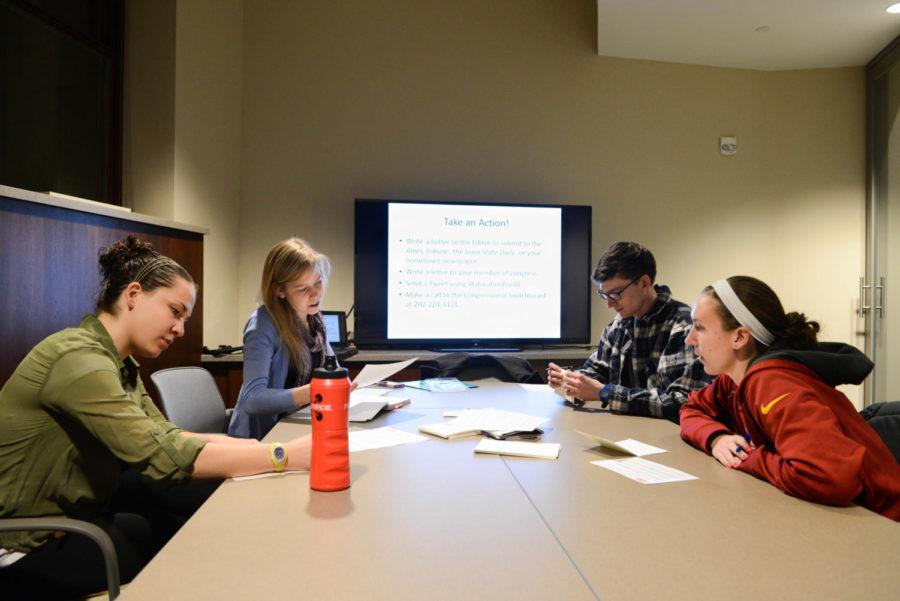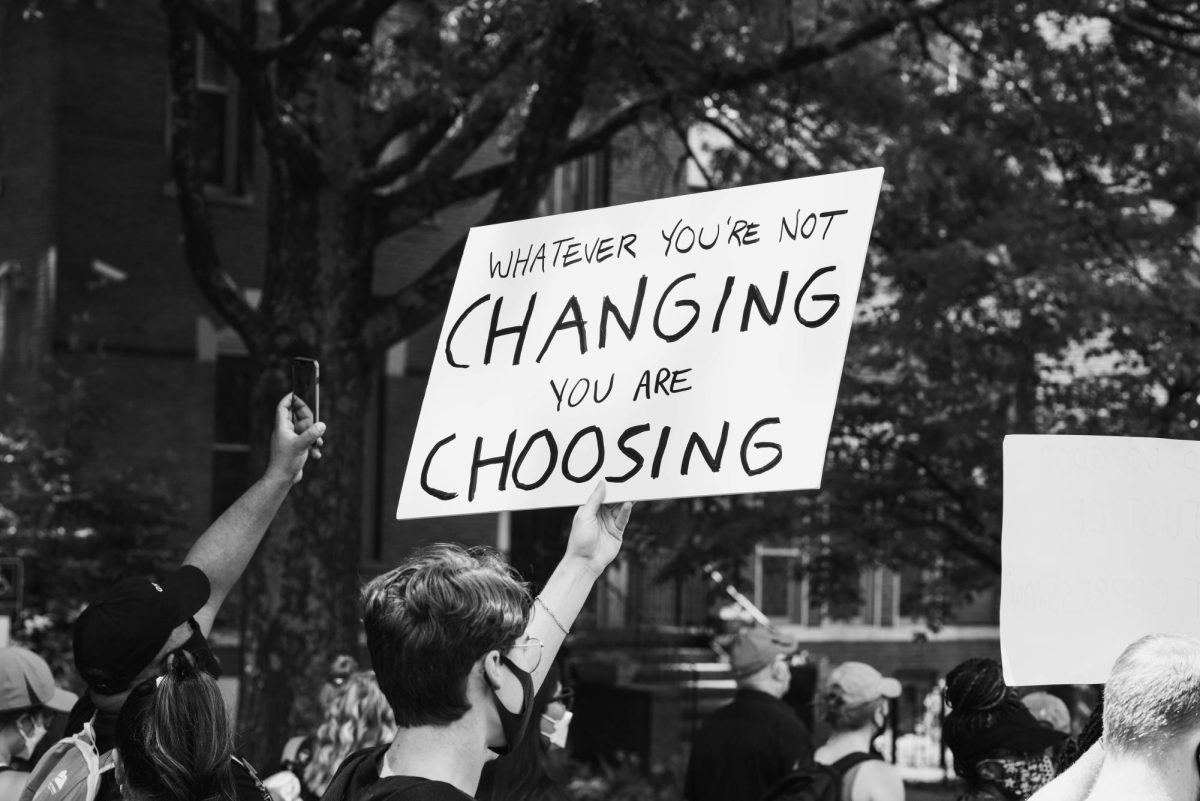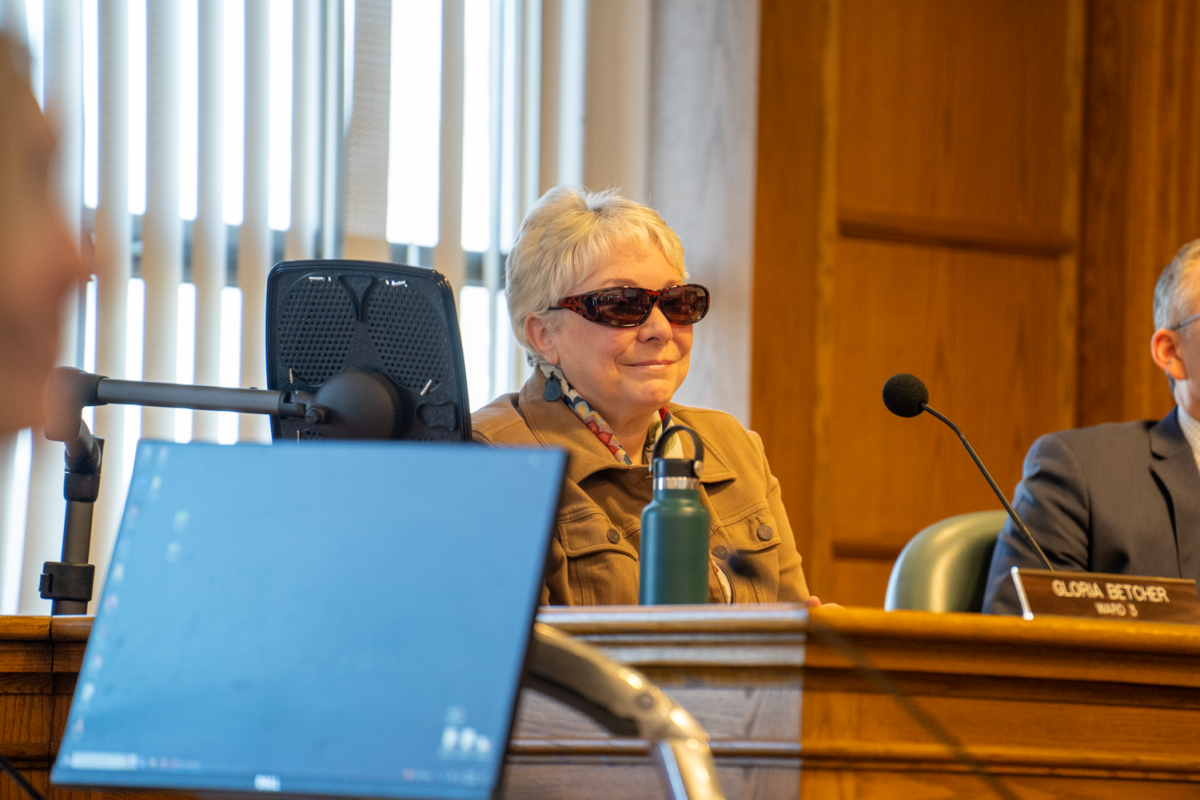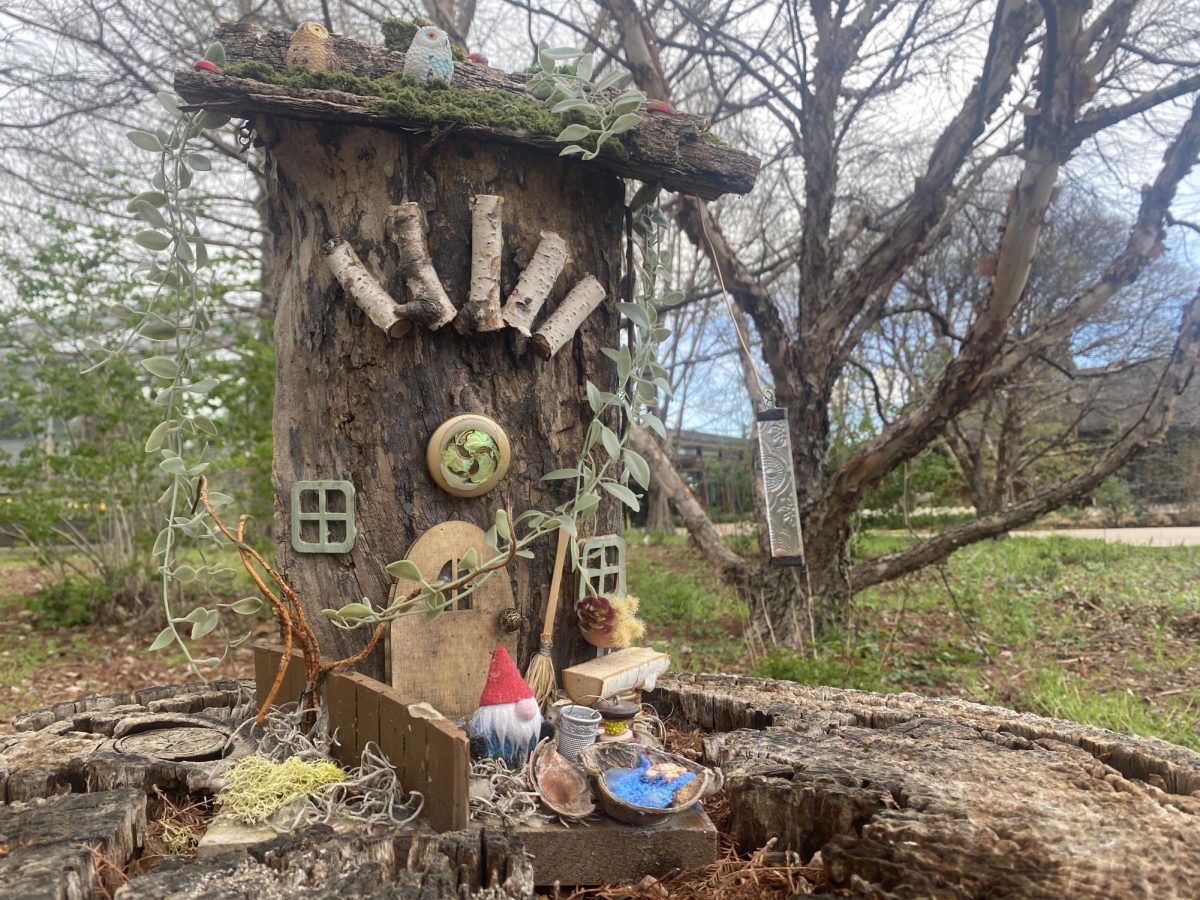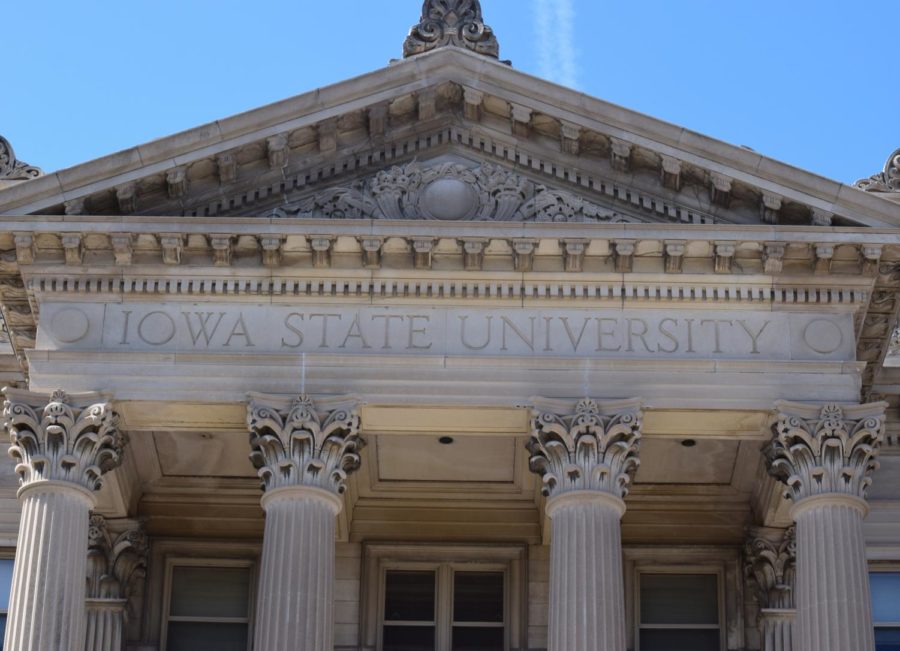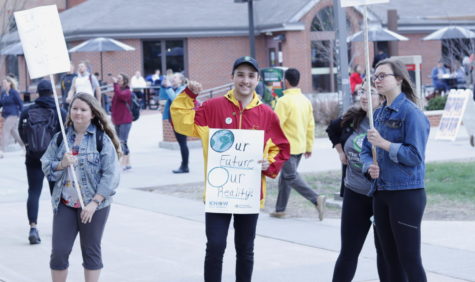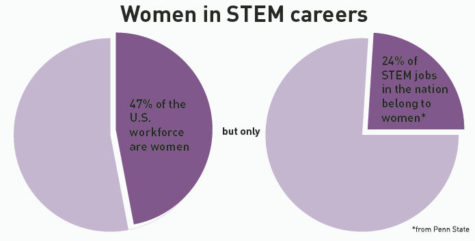New RESULTS chapter uses community-based approach to anti-poverty legislation
Co-leader of RESULTS, Madeline Becker and Nicholaus Jackosky are having the discussion with the members on Feb. 17 in Curtis Hall.
February 18, 2014
The new RESULTS chapter in Ames takes a community-based grassroots approach to impacting anti-poverty legislation by meeting with congressmen, writing letters and making calls. The group is part of a nationwide RESULTS organization.
“A whole grassroots organization pushing for the same issues is powerful,” Madeline Becker, senior in political science and co-leader of the Ames chapter said. According to results.org, their mission is to “create the public and political will to end poverty.”
Nick Jackosky, junior in global resource systems and co-leader of RESULTS, was inspired to advocate against poverty by seeing the struggles his best friend faced with poverty in his home town of Cleveland.
“I know her situation was not unlike what many other people in the U.S. are going through,” Jackosky said.
He said he can’t imagine the challenges that come with trying to get by in a developing country.
According to the United Nations’ 2013 Millennium Development Goals Report, 57 million primary age children were out of school in 2011, a number that Jackosky called “astounding.”
RESULTS works at a national level to provide local chapters with resources about legislation. Local chapters are either nationally or globally focused. The global Ames chapter directs their efforts towards eradicating world-wide poverty issues.
The group is currently advocating the Education for All Act, a bipartisan bill that would expand educational opportunities for children worldwide. Becker said that the bill has three components: to provide education for girls and children in conflict zones, to invest in developing countries and to invest in the Global Partnership for Education.
“A more informed public is one that makes better decisions and is better equipped to take on the challenges we face today,” Jackosky said.
Members of the Ames chapter will meet with congressman Steve King’s staff on Feb. 28 to discuss the bill.
Real-world experiences like these heighten awareness for college students, Becker said.
“It’s really easy for us to get in our personal bubble of our life and not know about issues that are going on around the world,” Becker said.
Becker said that RESULTS is a great way for college students to initiate change, while also improving their writing, public speaking and advocacy skills.
“We are actively going out and practicing these skills that you can use for the rest of your life in whatever you choose to do,” Becker said.
RESULTS groups participate in conference calls with other chapters across the country to discuss issues and progress. Becker said that other chapters have older members and that the college-aged members of the Ames chapter are “giving a new perspective to RESULTS” and “building the advocacy voices for tomorrow.”
The group welcomes new members to join their twice-monthly meetings and encourages members to take additional action on their own.
Jackosky said that in each meeting, the group makes a “direct action” to inform a representative of an issue the group cares about.
The next meeting will be held in conference room B0007, Curtis Hall on Feb. 24 at 6:30 p.m.
Becker was introduced to RESULTS at the Iowa Hunger Summit in Des Moines. She said that her summer 2013 internship with an anti-poverty organization was her inspiration to get involved with advocacy and non-profit work.

